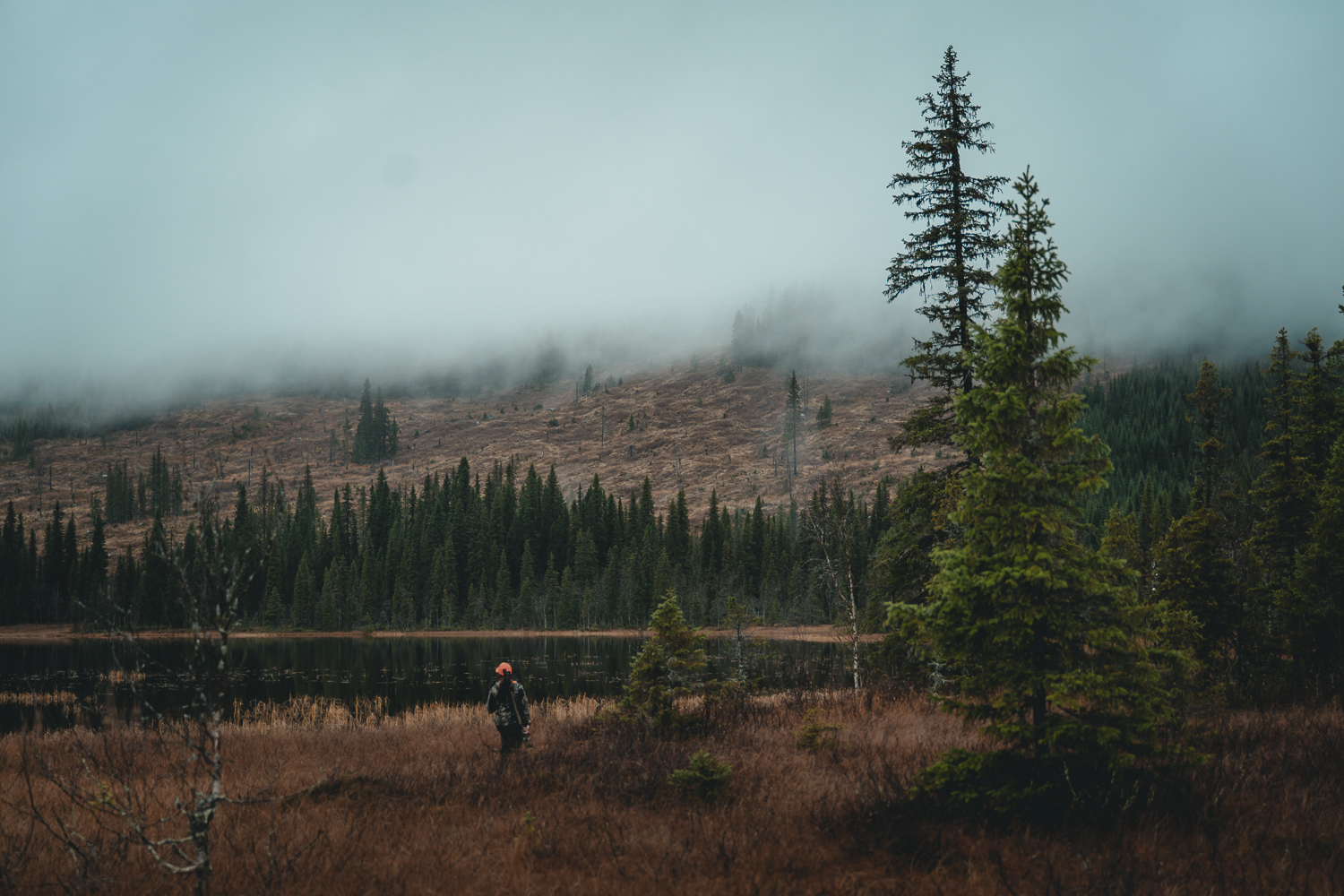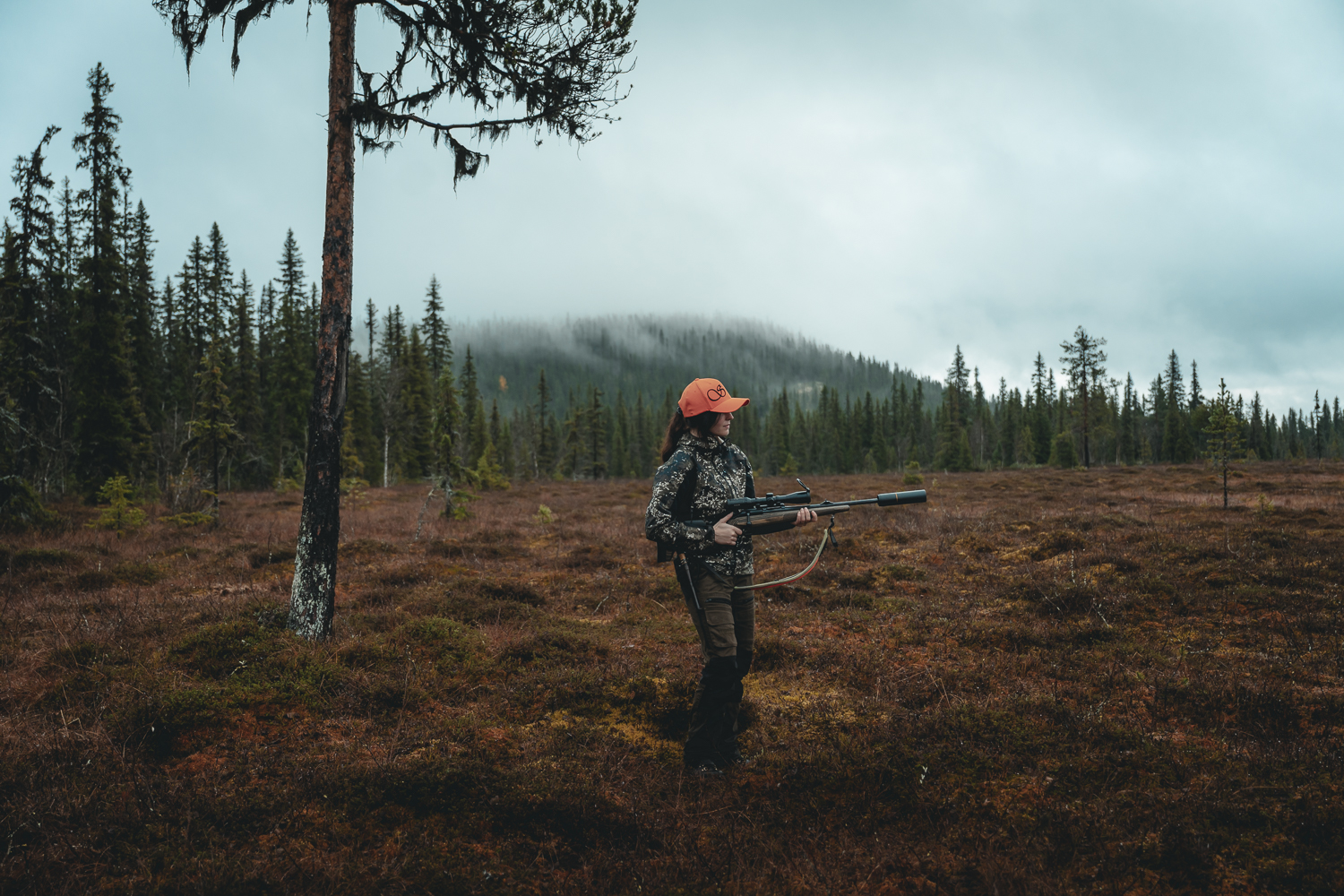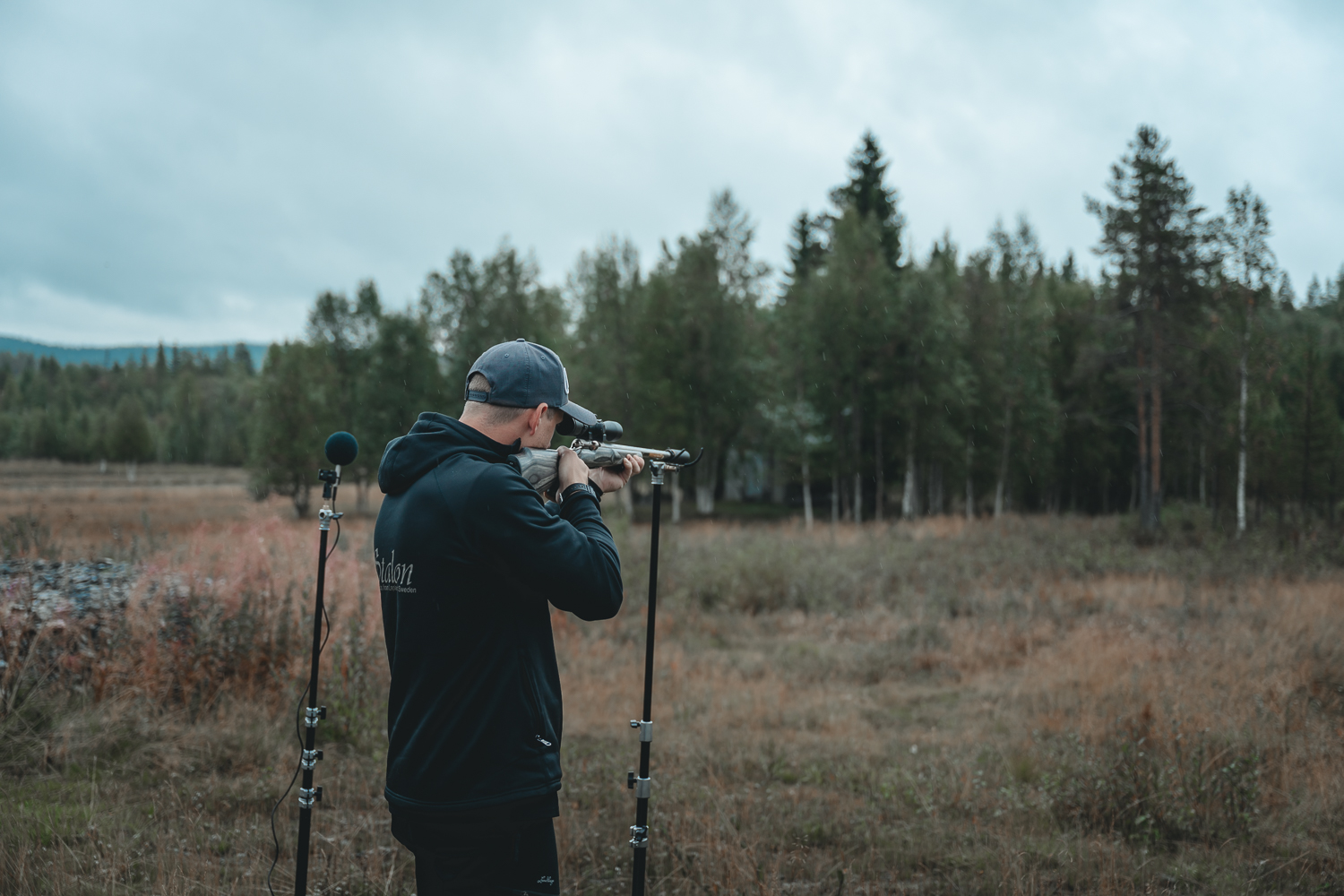Does a gunshot always sound the same?
Sound is something we encounter daily, but few of us stop to consider how complex it really is. For hunters, understanding how sound behaves is especially important, particularly when using a silencer. How does a gunshot sound in the woods compared to an open field? How is the sound affected by your surroundings, and what can you expect from a silencer in different environments? In this post, we dive into the fascinating world of sound and what it means for your hunting experience.

THE BASICS OF SOUND: WHAT HAPPENS WHEN YOU FIRE A SHOT?
When you fire, the shot produces a sharp noise commonly referred to as the “muzzle blast.” This sound occurs as hot gases and the bullet exit the barrel at high speed. It’s this blast that silencers are designed to reduce.
But the sound of a gunshot is more complex than just the initial blast. It also includes the sonic boom that happens when the bullet breaks the sound barrier - this occurs a few meters ahead of the shooter. Additionally, recoil and vibrations from the weapon contribute to the overall sound experience. Each of these elements plays a role in how loud, sharp, or stressful a shot feels.
HOW THE ENVIRONMENT SHAPES THE SOUND
How a gunshot is perceived is largely influenced by the environment where the shot is fired. Here are a few examples of how sound behaves in different settings:

OPEN FIELDS, MOUNTAINS, OR LAKES
In wide-open areas like mountains, fields, or across a lake, there are few or no surfaces to reflect the sound. That means the sound dissipates quickly, and the secondary sonic boom becomes barely noticeable. This results in a much quieter hunting experience, almost as if the shot barely happened.
FORESTS AND TIGHTER TERRAIN
In denser environments like forests or mountainous terrain, sound bounces off trees, rocks, and other natural surfaces, making the gunshot feel louder. Even if the silencer effectively reduces the muzzle blast, these reflections can amplify the perceived sound. It’s common for gunshots to feel more intense than expected in these areas.

SHOTS AGAINST BACKSTOPS
When firing against solid surfaces like a backstop or a rocky slope, the sound often echoes back toward the shooter, creating a louder effect. While it may seem like a stronger blast, the sound actually comes from reflection, not the firearm itself.
THE SILENCER ADVANTAGE - MORE CONTROLLED SHOTS
A well-designed silencer significantly reduces the loud blast at the muzzle. The result is a much softer, more controlled shot. Not only is this more pleasant for the shooter, but it also improves focus in the hunting moment. A quieter shot reduces the chance of flinching or overcompensating, which in turn can improve accuracy.
Another big benefit is being able to hear the impact more clearly. When muzzle pressure is minimized, it becomes easier to detect the bullet hitting the target, especially in open areas like mountains or fields, where the sound travels freely. This gives the shooter valuable real-time feedback. A silencer enhances the connection between you, your firearm, and the surroundings.

WHY DOES SOUND PERCEPTION VARY?
The way we perceive sound depends on many factors. Distance plays a major role; the farther you are from the shot, the softer it sounds, but sound can also amplify when it bounces off hard surfaces. Terrain matters too: forests, open fields, water, and mountains reflect or absorb sound in different ways. Wind direction and speed also influence how far sound travels, and temperature and humidity determine how fast sound waves move through the air.
Understanding how these factors work together makes it easier to choose the right gear and adapt your hunt to the environment. With the right silencer, you create a more controlled hunting experience, reducing sound both for yourself and everything around you.











